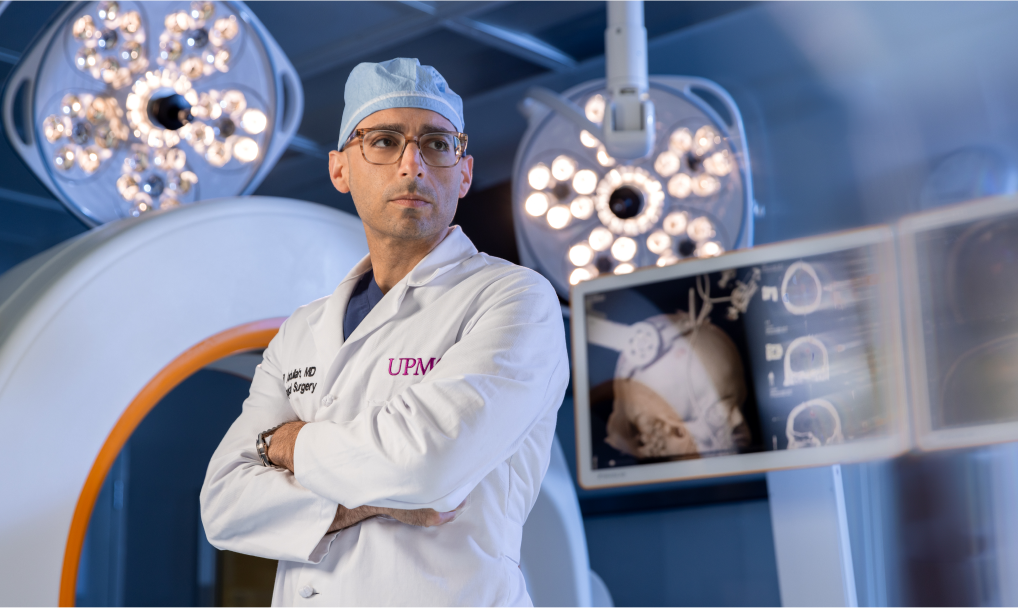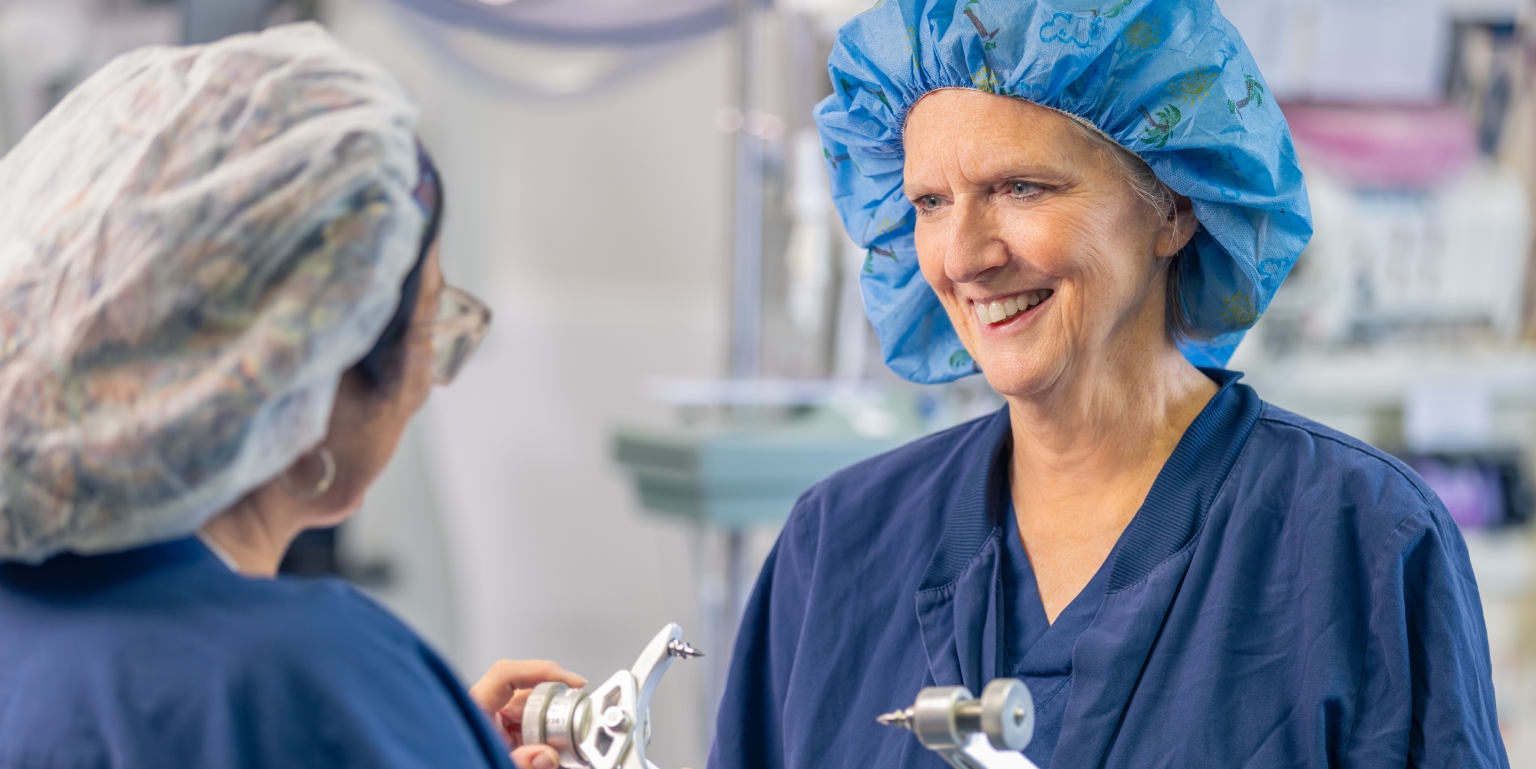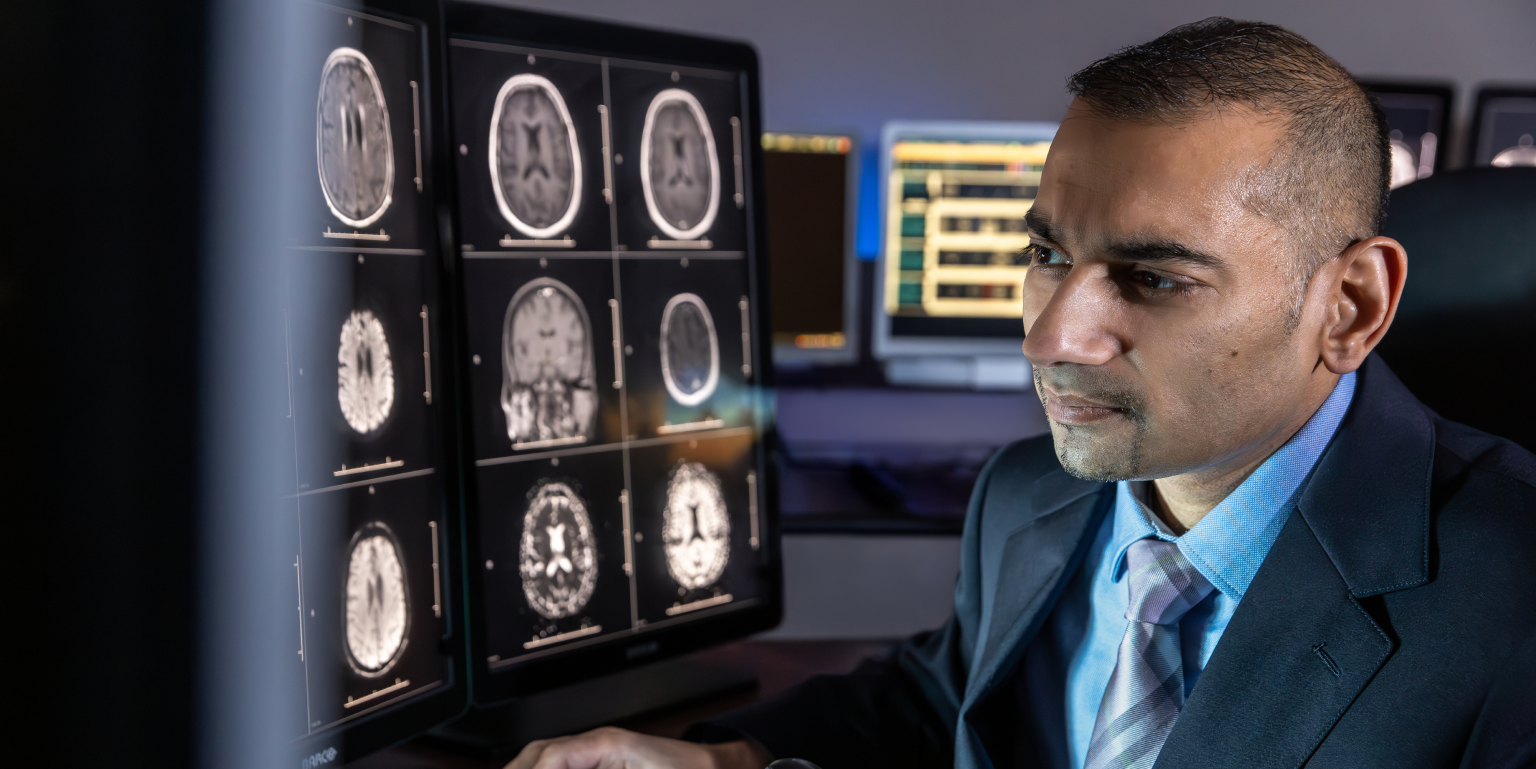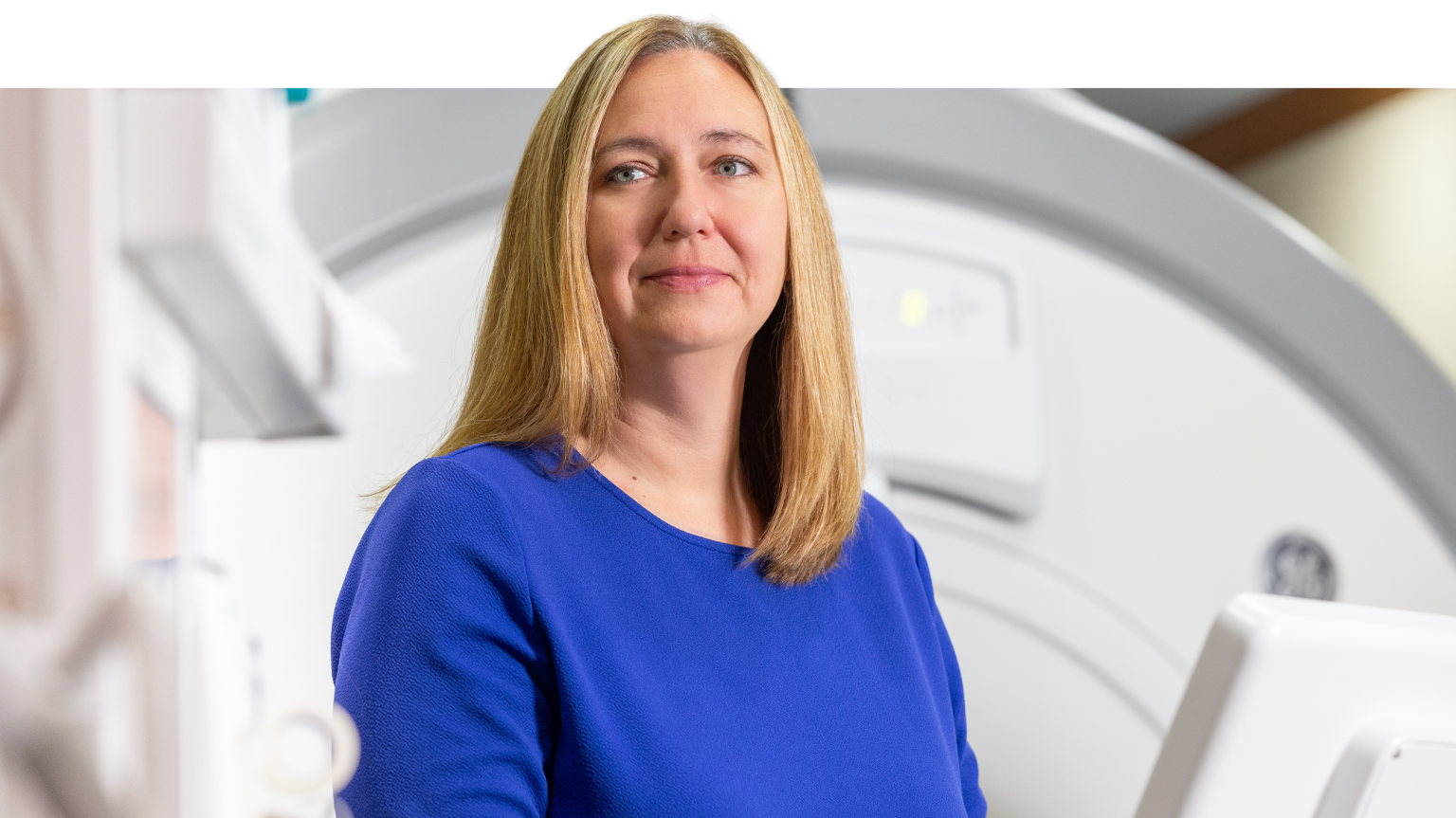Dr. Abdullah, UPMC Shadyside surgeon and the director of Translational Neuro-Oncology at UPMC Hillman Cancer Center, is discussing the newest of these treatments introduced at Shadyside: MRI-guided laser interstitial thermal therapy, or LITT. It involves the destruction of a lesion or tissue using heat from a laser.
“LITT is a very exciting and relatively new treatment for brain tumors,” Dr. Abdullah says. “It’s a less invasive approach for tumors that are very deep in the brain or for tumors that were previously considered to be inoperable. It involves placing a probe less than the diameter of a pencil into the brain using a very small incision that is less than an inch long. And then the patient has a small robot attached to their skull, which allows us to use MRI [magnetic resonance imaging] to guide the laser. We can see in real time the tumor being burned from the inside out.
“LITT really expands our ability to treat cancer and the progression of cancer in the brain. And because the treatment is minimally invasive, most patients are back home the next day after surgery.”
LITT demonstrates UPMC Shadyside’s commitment to growing state-of-the-art neurosurgery. “An institution’s ability to offer LITT depends on both advanced technology and the collaboration of experts in multiple disciplines,” Dr. Abdullah states.
“For example, LITT would not be possible for us to do without Brainlab, the integrated software and hardware system that has revolutionized how we combine preoperative imaging information and surgery.” Brainlab came to the hospital at the urging of Shadyside neurosurgeon Pascal Zinn, MD, PhD, director of the adult neurosurgical oncology program at the University of Pittsburgh.1
“Then on top of that, we need to have coordination between our anesthesia team, our radiology and surgical teams, and our MRI team.”




